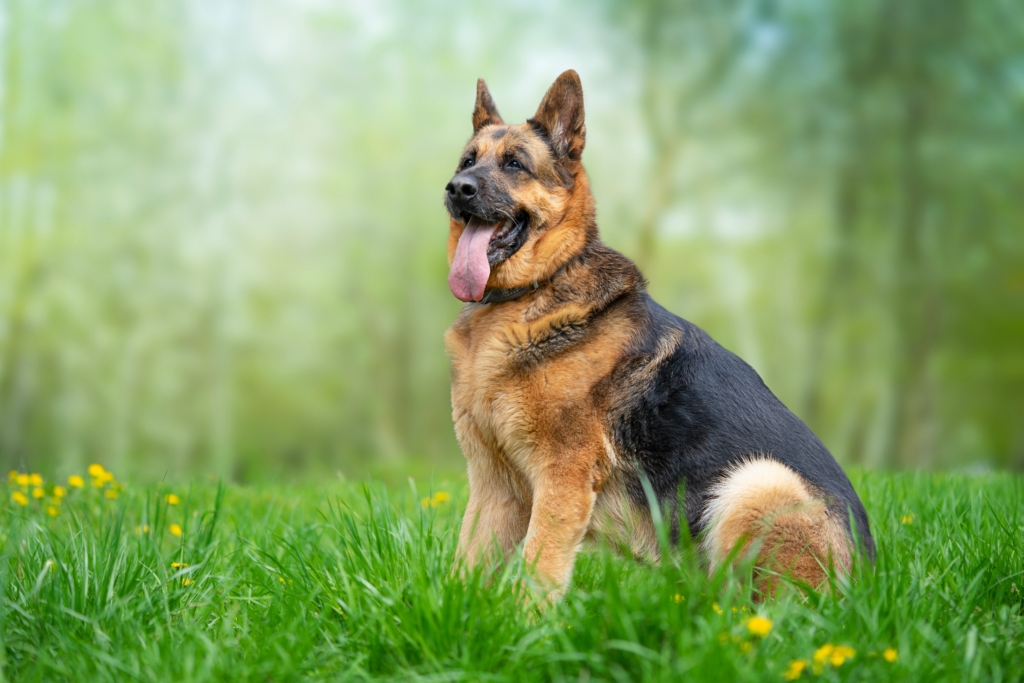
German Shepherd Puppy Care Guide: Health Tips and More
Share
Welcoming a German Shepherd puppy into your home is an exciting journey filled with love, energy, and a dash of dedication. As a health-conscious pet owner, you are keen on ensuring your new furry friend grows up to be healthy and happy. This comprehensive German Shepherd puppy care guide will help you navigate the essentials of raising a robust and well-adjusted puppy. From understanding their unique needs to implementing a balanced diet and exercise regime, this guide covers it all.

Understanding Your German Shepherd's Needs
The first step in caring for your German Shepherd puppy is understanding their specific needs. Known for their intelligence and loyalty, German Shepherds are highly active and thrive on regular physical and mental stimulation. Without proper care, they may develop behavioral issues or health problems.
To ensure your puppy grows into a healthy adult, focus on providing a balanced diet, regular exercise, and mental stimulation. According to the American Kennel Club, German Shepherds are a working breed, meaning they need tasks to perform to keep them happy and engaged.
Nutrition: Fueling Growth and Development
Feeding your German Shepherd puppy a proper diet is crucial for their growth and development. Puppies have specific nutritional needs that change as they grow. It's essential to provide them with high-quality puppy food rich in proteins, healthy fats, and essential vitamins and minerals.
Consider consulting with your veterinarian to choose the right diet for your puppy. Many health-conscious pet owners opt for a diet free from artificial additives and fillers, focusing instead on whole, natural ingredients. Additionally, you can refer to a puppy crate training guide to understand how to incorporate feeding schedules into crate training.
Exercise: Keeping Your Puppy Active
German Shepherds are known for their high energy levels. Regular exercise is vital to prevent obesity and promote cardiovascular health. Daily walks, playtime, and training sessions are excellent ways to keep your puppy physically fit and mentally stimulated.
Engaging in activities like ball games can be beneficial for both exercise and bonding. Remember, as your puppy grows, their exercise routine should evolve to meet their developing needs.
Training: Building a Strong Bond
Training is a critical component of German Shepherd puppy care. These intelligent dogs respond well to positive reinforcement techniques. Start with basic commands and gradually introduce more complex tasks as your puppy matures.
Effective training not only helps in controlling their energy but also strengthens the bond between you and your pet. You might find teething tips useful during the training process to manage biting behavior.
Health Monitoring: Preventive Care
Regular veterinary check-ups are essential for maintaining your puppy's health. Vaccinations, deworming, and flea prevention should be part of your routine care.
Keep an eye out for common health issues in German Shepherds, such as hip dysplasia and digestive problems. Early detection can lead to more effective treatment. To learn more about potential health issues, you can visit Wikipedia's page on German Shepherds.
Socialization: Introducing Your Puppy to the World
Socialization is key to raising a well-adjusted German Shepherd. Expose your puppy to different environments, people, and other animals. This exposure helps reduce anxiety and aggression in unfamiliar situations.
Consider enrolling your puppy in a socialization class or arranging playdates with other dogs. These experiences are invaluable in teaching your puppy how to interact appropriately with others.
Creating a Safe and Stimulating Environment
Your home should be a safe haven for your German Shepherd puppy. Puppy-proof your house by removing hazardous objects and ensuring that your puppy has access to safe toys and chew items.
Providing a stimulating environment with a variety of toys and activities can prevent boredom and destructive behavior. Explore lifespan tips to understand how a stimulating environment contributes to a long, healthy life.

FAQs
1. How often should I feed my German Shepherd puppy?
It's recommended to feed your puppy three to four times a day. As they grow, you can reduce the frequency to twice daily. Consult your vet for specific dietary needs.
2. When should I start training my German Shepherd puppy?
Training should begin as early as eight weeks old. Start with basic commands and gradually introduce more complex tasks to keep your puppy engaged.
3. How can I prevent my German Shepherd from developing hip dysplasia?
While genetics play a role in hip dysplasia, maintaining a healthy weight and providing regular exercise can help minimize the risk. Regular vet check-ups are also crucial for early detection.
This article contains affiliate links. We may earn a commission at no extra cost to you.
